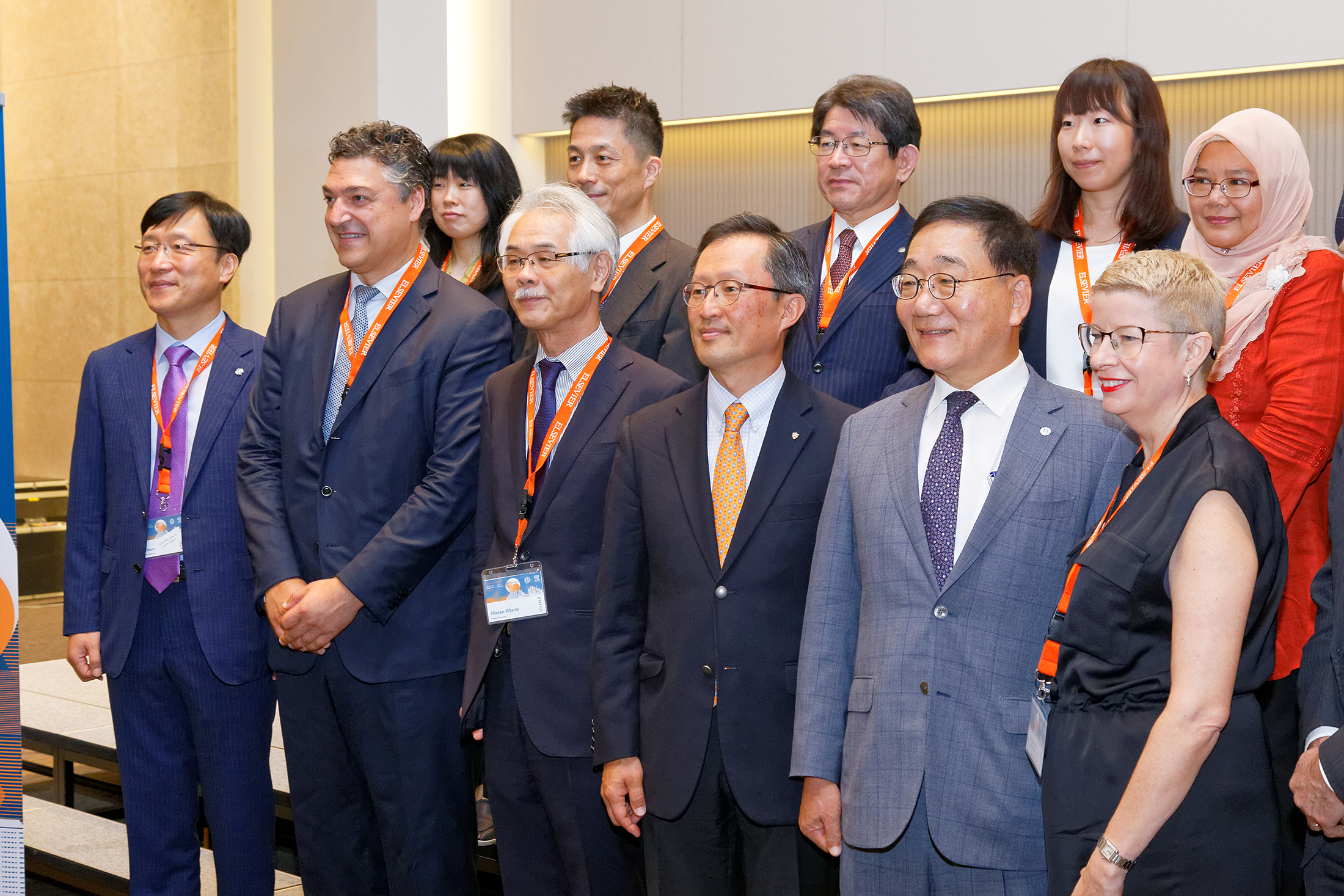- Yonsei Discusses Societal Impact for Asia Pacific October 19, 2018
-
2018 Asia Pacific Research Intelligence Conference (APRIC) held at Yonsei University in June
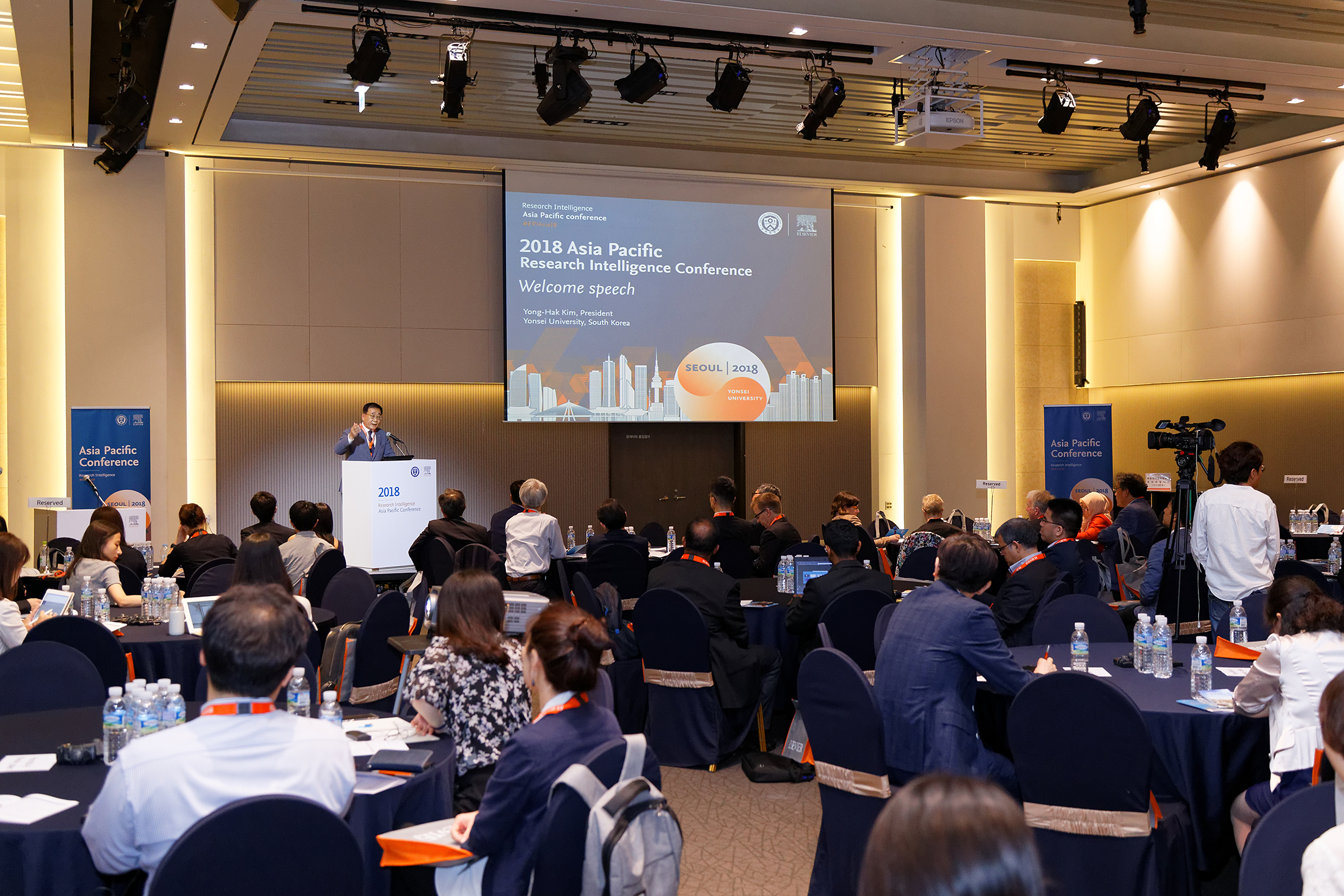
Yonsei University hosted the 2018 Asia Pacific Research Intelligence Conference (APRIC), bringing together over 150 key research faculty and administrative members of the region’s leading education and research institutions across 12 countries to discuss how universities can contribute to society with significant research. Co-hosted by Elsevier, the leading publisher of scientific and medical journals, this year’s annual APRIC was held for two days during June 20–21 at Yonsei University’s main Sinchon campus in Seoul, Korea under the theme, “World Class Universities for Societal Impact.”
APRIC is a joint research conference between universities and research institutes annually held at representative universities of the Asia Pacific region. Since its inauguration at Nanyang Technological University of Singapore in 214, the conference has been held at Fudan University of China, Keio University of Japan, and Chulalongkorn University of Thailand. As the leading private university in Korea, Yonsei was the host university for the 5th APRIC.
An array of influential international speakers from across the Asia Pacific region, including Yonsei University and Elsevier, discussed evolving expectations, available solutions, measurements and best innovative practices associated with the optimization of research strategies through concurrent sessions and discussions. The conference also focused on strategies for expanding the social influence of universities and the role of higher education in bringing about beneficial social change. Furthermore, APRIC reviewed the progress of universities and research institutes to build global brands while presenting and discussing future strategies.
“Universities must actively engage in solving global issues in the future society.”
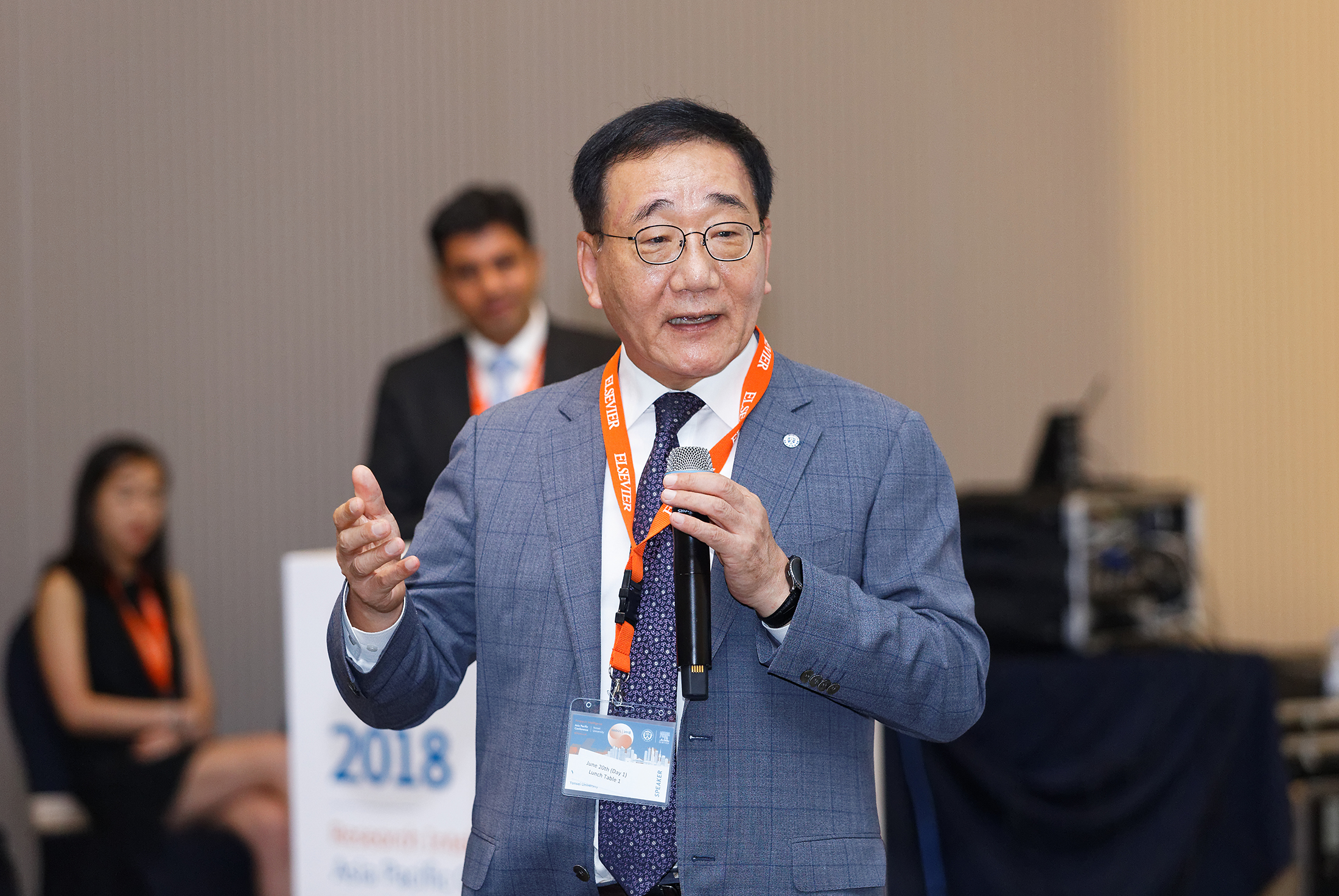 Yong-Hak Kim, President of Yonsei University
Yong-Hak Kim, President of Yonsei University“As technology evolves, the traditional role of universities to promote education and research is shifting towards solving challenges of the society of humankind,” said President Yong-Hak Kim of Yonsei University during his welcome speech. “Universities must divert from mere knowledge-transition to introducing an innovative education paradigm that provides the opportunity to contemplate the value of humanity in the era of Artificial Intelligence. Yonsei is introducing experiential learning, where students can act as mentors for the regional community by engaging with its neighbors and directly addressing its issues.”
“In the future, universities must engage in solving global problems,” he added. “Yonsei University established the Institute for Global Engagement and Empowerment with former United Nations Secretary-General Ban Ki-moon to overcome human crisis and to implement sustainable development.” He concluded his speech by hoping that all participants would discuss the role and influence of universities in the future society during the conference.
The Important Role of Universities Amidst Social Change
This year’s APRIC featured 24 main speakers, including Il Moon, Senior Vice President for Research Affairs, Young-suk Chi, Chairman of Elsevier, Aidan Bryne, Provost of the University of Queensland, Masao Kitano, Vice President of Kyoto University, and Noorssadah Abd. Rahman, Deputy Vice Chancellor of University of Malaya.
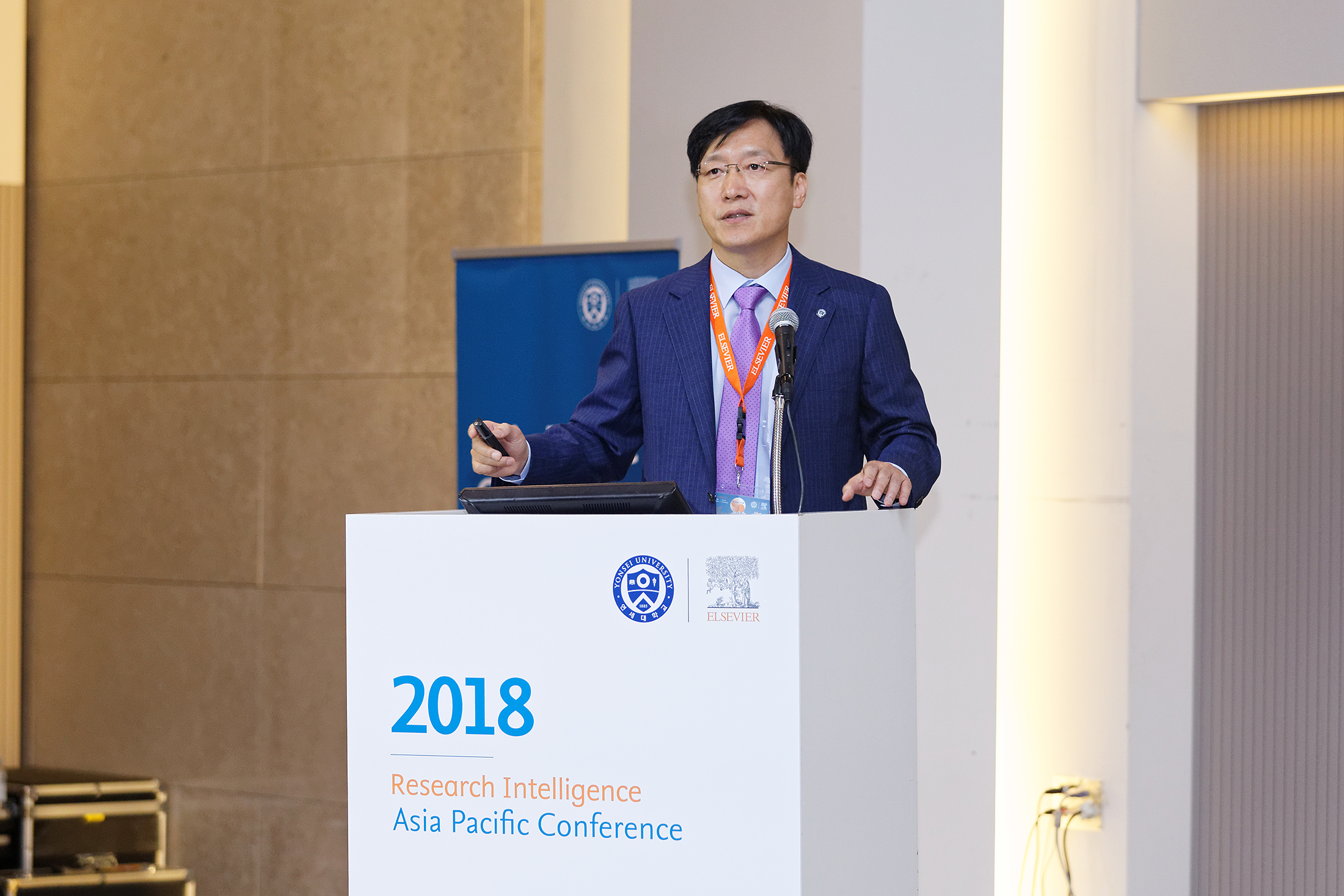 Il Moon, Senior Vice President for Research Affairs, Yonsei University
Il Moon, Senior Vice President for Research Affairs, Yonsei UniversityIl Moon, Senior Vice President for Research Affairs at Yonsei University, set the overall tone of the conference by sharing his views on “The Role of the University for Future Technology and Society,” thus providing a general overview of Yonsei’s history and research status. “Society changes quickly with the development of technology, and the role of universities during this transitional time is critical,” he said, encouraging active discussion on the role of future universities.
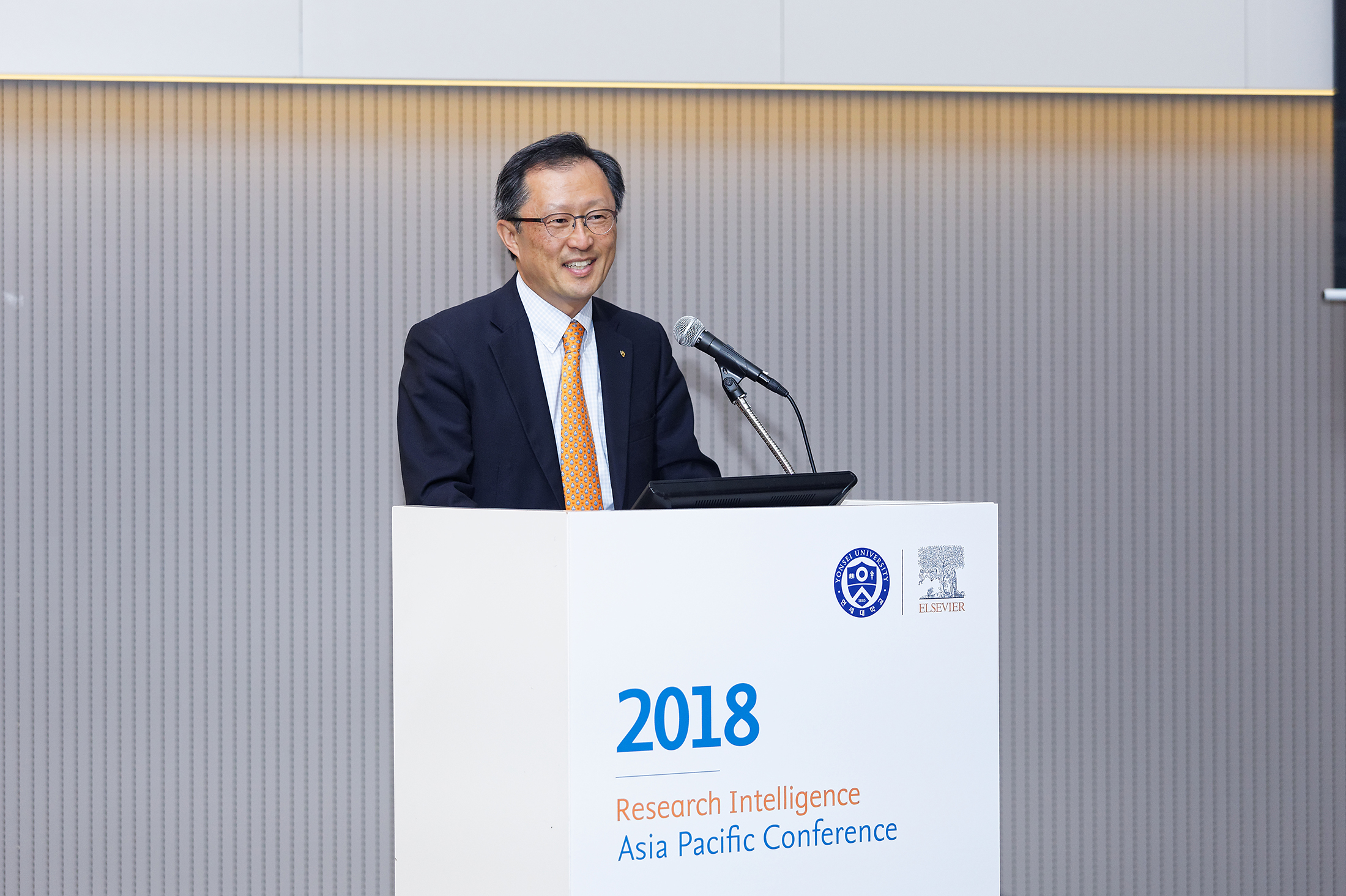 Young-suk Chi, Chairman of Elsevier
Young-suk Chi, Chairman of ElsevierIn the following session, Chairman Young-suk Chi of Elsevier gave a presentation titled, “Towards a More Sustainable Future: How Universities Can Leverage Research Strategy to Achieve Social Impact” and provided insights on the ultimately successful strategy for social impactful research. “In a world where research studies are overabundant, we must value collaboration and cooperation to attain excellent results by doing new, differentiated work,” advised Chi. “Narrow your scope. Apply an innovative approach and collaborate with others.”
Some of the key areas that were addressed in depth during the various presentations and sessions were sustainable futures, the future of universities, the role of universities and social innovation, the importance of building a global brand, and new approaches to research management.
show mobile menu
mobile menu

